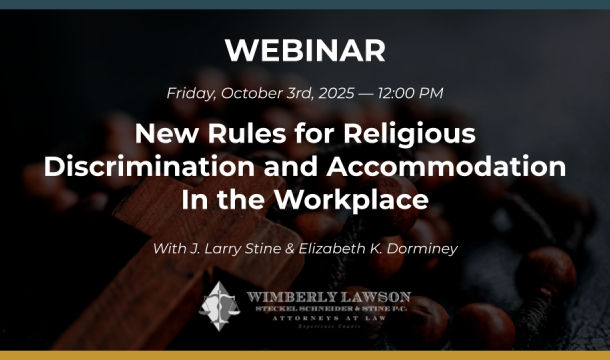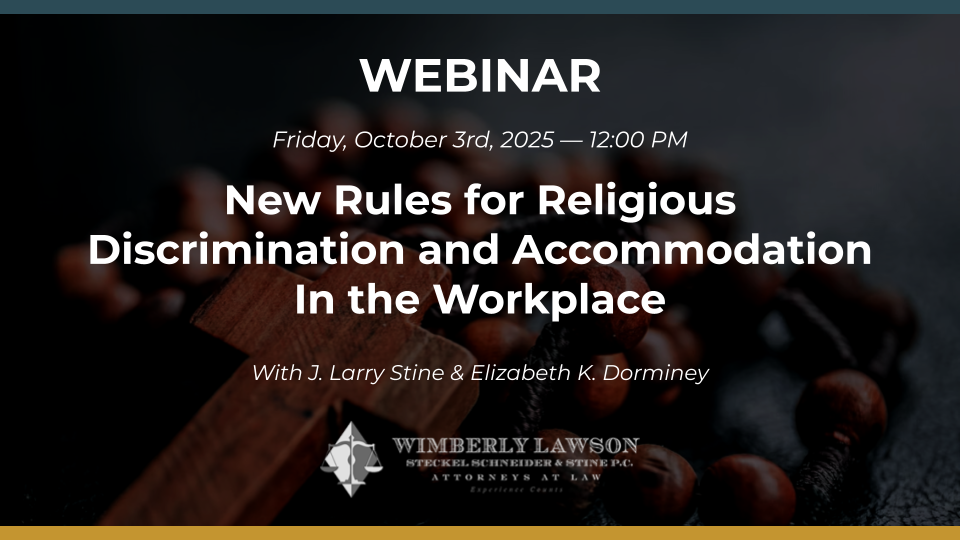Dear John: The EEOC Issues Guidance on Transgender Bathroom Access
As we have discussed in previous blog posts, the U.S. Equal Employment Opportunity Commission is taking a very proactive approach to addressing the issue of transgender discrimination in the workplace. The EEOC, which is the federal agency charged with investigating and eliminating discrimination in the workplace, takes the position that transgender discrimination is discrimination "based on sex" in violation of Title VII of the Civil Rights Act of 1964, as amended. Not all federal courts are in agreement with that position.
This week, the EEOC issued a Fact Sheet that addresses Bathroom Access Rights for Transgender Employees Under Title VII of the Civil Rights Act of 1964. https://www.eeoc.gov/eeoc/publications/fs-bathroom-access-transgender.cfm. The issue of bathroom access rights for transgendered persons has been all over the news, so it is not surprising that the EEOC issued guidance in this area. In this Fact Sheet, the EEOC asserts that
- denying an employee equal access to a common restroom corresponding to the employee's gender identity is sex discrimination;
- an employer cannot condition this right on the employee undergoing or providing proof of surgery or any other medical procedure; and,
- an employer cannot avoid the requirement to provide equal access to a common restroom by restricting a transgender employee to a single-user restroom instead (though the employer can make a single-user restroom available to all employees who might choose to use it).
In addition, the EEOC issues the following guidance, which is applicable to all types of discrimination in the workplace:
- Gender-based stereotypes, perceptions, or comfort level must not interfere with the ability of any employee to work free from discrimination, including harassment. "[S]upervisory or co-worker confusion or anxiety cannot justify discriminatory terms and conditions of employment. Title VII prohibits discrimination based on sex whether motivated by hostility, by a desire to protect people of a certain gender, by gender stereotypes, or by the desire to accommodate other people's prejudices or discomfort."
And finally, this observation is especially useful in this era of extremely polarized personal and political beliefs:
- Like all non-discrimination provisions, these protections address conduct in the workplace, not personal beliefs. Thus, these protections do not require any employee to change beliefs. Rather, they seek to ensure appropriate workplace treatment so that all employees may perform their jobs free from discrimination.

Kathleen J. Jennings is a former principal in the Atlanta office of Wimberly, Lawson, Steckel, Schneider, & Stine, P.C. She defends employers in employment matters, such as sexual harassment, discrimination, Wage and Hour, OSHA, restrictive covenants, and other employment litigation and provides training and counseling to employers in employment matters.
Related Content
Get Email Updates
Recent Content

Trump Nominates Appointments to NLRB and EEOC but Policy Changes Likely to Be Delayed

DOL Launches Self-Audit Programs Designed to Help Employers Improve Compliance

DOL Must Release EEO-1 Reports to the Public under Open Records Laws

Current Advice on Active-Shooter Situations

New Policy for Federal Workers and Religious Expressions

